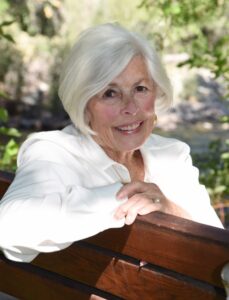By JoEllen Collins

The other day I was able to discuss an experience I had during my summer in India as a member of UCLA’s Project India (a Peace Corps model). It was so long ago that Nehru was prime minister and we traveled by prop plane. A diverse, multi-ethnic group, we spoke to thousands of Indian students as representative of rather typical college students. That trip was one of the most important times of my life, and it taught me many things: a passion for travel, often simple and involving volunteering; a willingness to be open-minded about other cultures; and an overwhelming sense of gratitude that I was able to have this experience.
One incident then most reflected my changing views about perceptions of reality. The visuals in this memory are etched as valid. Four of our seven teammates were invited to the home of the president of one of the colleges of the University of Calcutta. Decades later, I can still recall the shock when this articulate, Oxford-educated, charming and generous gentleman took us after our dinner to his “puja” room, a small, circular space with one door, a high ceiling and a window on the roof allowing some light other than that of the candles on the altar where he sat facing us. After several minutes with absolute quiet before his sonorous voice related his history and Hindu philosophy, he asked us to turn around to greet a visitor. We had not heard a door open, nor was there furniture one could find for concealment. There sat a compact Gandhi-like man attired in a dhoti. Our host told us that this man, his guru, had transmogrified in the past few minutes, moving his body from another part of India to be with us. The next time we turned toward the back wall, he was gone without a sound—pfft!
On the bus home, only the confirmed atheist said that he saw no one. He insisted that we and the scholar were the only human beings there. To this day, at reunions, we have talked about this incident. I swear that I saw that figure in the arc of the wall, and so does another of my teammates. The third has mixed recall.
I have studied how memory alters the truth of an event, especially with age and time. Occasionally, we remember things as we want them to have been. Contemporary friends might say that we had been drugged, hypnotized or, at the least, politely taught to honor that vision, to believe the spell-casting concepts we were encountering in such an exotic place, assuming that we were young and naïve and vulnerable to the kind of “magic realism” in a country and culture so distant from all we had known.
Whatever was the “truth” of those moments, I am convinced that our host believed fervently in that action of his guru, and I can accept fully that the cultural and religious beliefs of others are not necessarily wrong or should be dismissed because they are different from ours.

